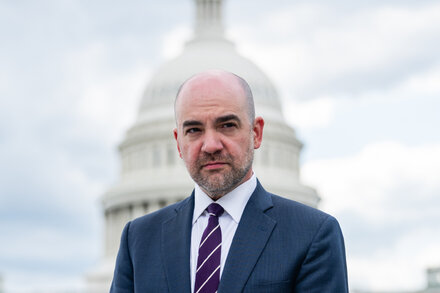SACRAMENTO, CA — Governor Gavin Newsom today signed into law a comprehensive measure aimed at regulating artificial intelligence, positioning California at the forefront of state-level efforts to manage the rapidly evolving technology. The legislation, often referred to as the “California AI Accountability and Safety Act,” introduces a suite of new requirements for developers and deployers of high-risk AI systems.
The new law mandates independent safety evaluations for advanced AI models before they are released to the public, focusing on potential societal risks, including bias, misinformation generation, and autonomous decision-making in critical sectors. Developers will also be required to implement “kill switches” or emergency shutdown protocols for certain powerful AI systems and to report any significant incidents or potential harms to a newly established state oversight body.
“California is once again leading the nation, and indeed the world, in establishing a responsible framework for technologies that will shape our future,” Governor Newsom stated during the signing ceremony. “This law ensures that innovation proceeds hand-in-hand with safety and accountability, protecting our citizens while fostering the incredible potential of AI.”
Key provisions of the legislation include requirements for transparency, compelling companies to disclose when AI is being used in critical decision-making processes that could affect individuals’ lives, such as employment, housing, or healthcare. It also establishes a new division within the California Department of Technology, tasked with developing technical standards, conducting audits, and enforcing compliance with the new regulations.
Industry Reaction and Implementation
The passage of the bill follows extensive debate among lawmakers, tech industry representatives, academic experts, and civil liberties advocates. While some in the AI sector have expressed concerns about the potential for over-regulation to stifle innovation, many have also acknowledged the necessity of clear guidelines.
“We recognize the importance of robust safety measures and look forward to collaborating with the state on the practical implementation of these new requirements,” said a spokesperson for a leading tech industry association. “Our goal remains to innovate responsibly, and we believe a clear regulatory framework can ultimately benefit both developers and users.”
Proponents of the law emphasize that California, as a global hub for technological innovation, has a unique responsibility to set standards for emerging technologies. They argue that a proactive approach is crucial to mitigate potential risks before they become widespread, building public trust in AI’s development.
The law is expected to take effect in phases over the next 12 to 18 months, allowing time for companies to adapt their practices and for the state to establish the necessary oversight mechanisms and technical guidelines. Its implications are anticipated to extend beyond California’s borders, potentially influencing federal legislation and regulatory efforts in other states and nations.
Source: Read the original article here.





